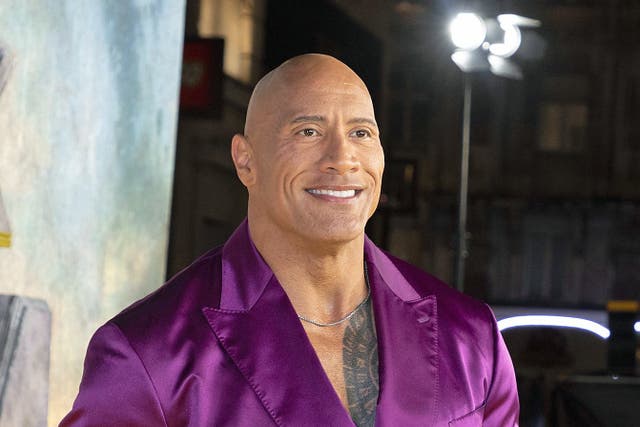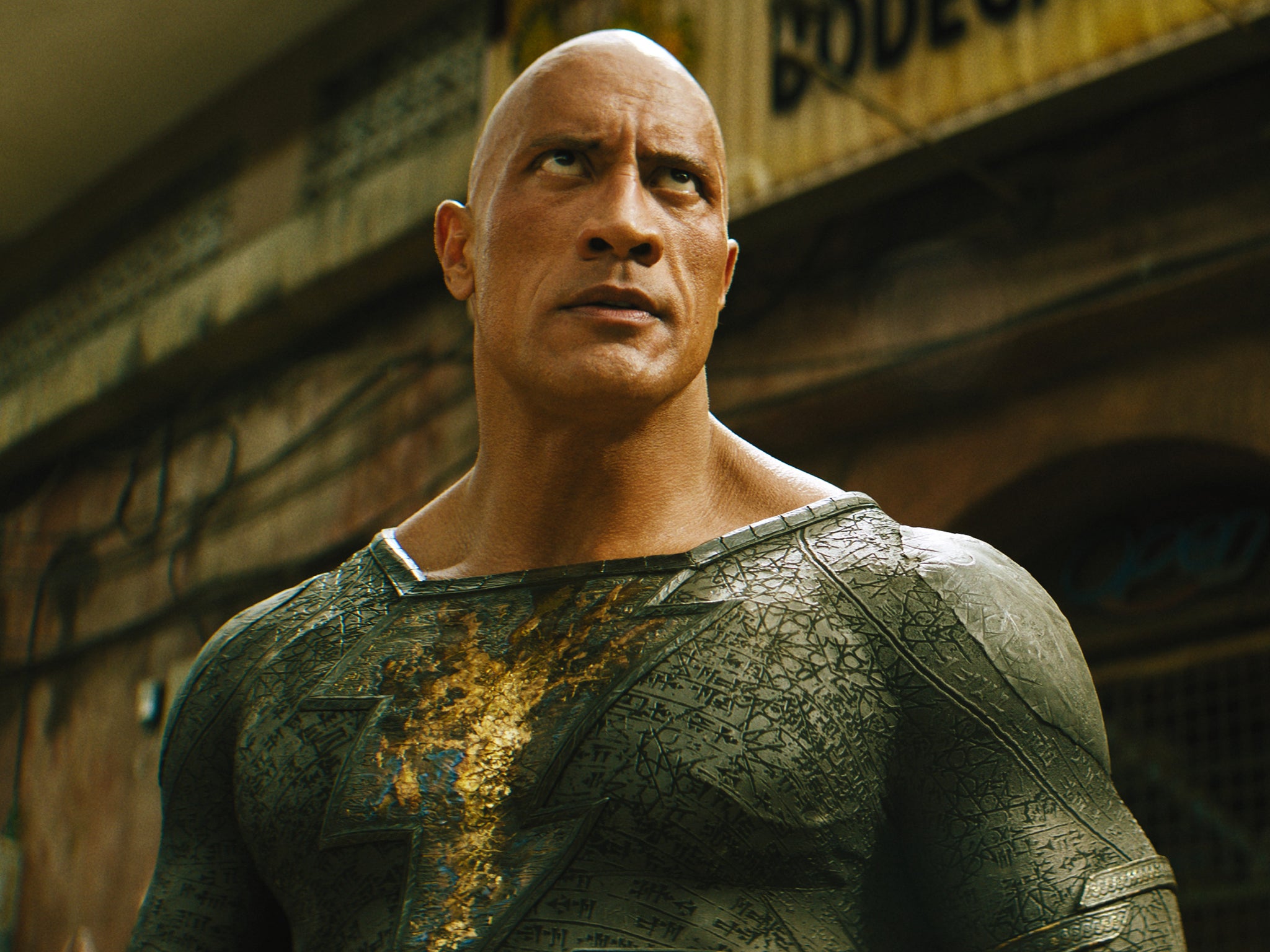Dwayne Johnson wasn’t always a rock. It was shortly into his career as a WWE (then WWF) wrestler that the actor adopted his famous sobriquet, having initially been named “Rocky Maivia” – a combination of his father and grandfather’s wrestling names. But “The Rock” has always seemed like a suitable aptronym. He’s hard, yes. Chiselled, sure. “Rock” might even conjure some sense of natural majesty – like a great cliff face, perhaps. But when have rocks ever been fun?

The man many tip as a legitimate contender for future US president – in the pop culture mould of Ronald Reagan or Donald Trump – is now starring in what could be his highest-profile film role to date. In the DC Comics adaptation Black Adam, Johnson plays a fearsome antihero, a gnarlier, kill-happy Superman. It’s already been savaged by reviewers – The Independent’s Clarisse Loughrey dubbed it “bewildering” and “stubbornly monotonous” – but the strength of Johnson’s personal brand has meant the film is already a box office hit. It’s hard not to look at The Rock, though, and be slightly baffled by the magnitude of his success. How did this man with no real ability to sell a line reading, who is just a few kilograms shy of looking like a circus strongman, manage to become one of the biggest movie stars on the planet?
It wasn’t always this way. After being raised in the sweat and bluster of professional wrestling, The Rock tumbled somewhat awkwardly into the world of Hollywood, making his debut in the Brendan Fraser action flick The Mummy Returns in 2001. While he found steady work over the next decade, Johnson struggled to whittle his outsized wrestling persona into something more suited to the idiosyncrasies of cinema. There were the garish CGI sludge-fests (The Scorpion King; Doom). The lazy action movies (Walking Tall). The schlocky family comedies (The Game Plan). In the WWE, The Rock had been white marble. In Hollywood, his career was sediment.
And yet, at some point, the narrative changed. Johnson may not have been a great actor, but he slowly became a bona fide movie star. Starting with his role in Fast Five, he began to be seen as a major box office draw. Through films like Central Intelligence, San Andreas and Jumanji: Welcome to the Jungle – releases that were widely seen but left no lasting cultural footprint – he transformed himself into one of the world’s most bankable stars.
In each of the five years leading up to the pandemic, Johnson was either the highest or second-highest-paid actor in the world, earning an estimated total of $430.4m. But while he was winning over the hearts of the public, he has never been embraced by the critical community, even to the extent that other WWE alumni like Dave Bautista or John Cena have (in films such as Blade Runner 2049 or Blockers). Recent films like Jungle Cruise and Netflix’s Red Notice have showcased the worst of the 50-year-old actor’s foibles; they are high-budget dross, through and through.

So what is behind Johnson’s appeal? While few outside of the WWE fandom would ever describe The Rock as funny – if wrestling one-liners and “jabroni” insults are your thing, I suppose he’s basically Oscar Wilde – he has also done well to take on projects that allow him to gently poke fun at himself. From a voice role in Disney’s hit animated musical Moana to a cameo in Stephen Merchant’s Fighting With My Family, he has judiciously picked at the cracks in his all-action persona.
“Obviously he’s kind of superhuman in stature and looks and charisma and all those things, but he has an innate ability to always laugh at himself,” his Red Notice co-star Ryan Reynolds told Vanity Fair. “And that, in and of itself, is a superpower, you know? That’s always been the thing that I think really allows people in.” Self-parody will only go so far, mind you. Reports of contractual clauses preventing him from losing fights on screen suggest he’s not quite ready to throw his brand – or ego – entirely to the wind.

For another thing, Johnson has remained unusually apolitical, eschewing both the standard-order Hollywood liberalism that likely would have alienated much of his OG wrestling fanbase, as well as the reactionary Republicanism that can push hitherto successful actors into de facto pariahdom. Earlier this year, he dipped his toe in political controversy by appearing to voice support for polarising podcaster-bro Joe Rogan, only to walk it back, describing it as a “learning moment”.
Of course, the big thing Johnson has going for him – the big thing he has always had going for him – is his body. There are disadvantages to being a human tank, of course. In terms of acting, it puts a pretty huge limitation on the types of roles you can credibly play. He looks like no normal person looks. But for action films, this can often be a boon.
More than this, though, his musclebound body is actually key to his whole persona. Johnson has, however cynically, cultivated a reputation as a hard worker, someone who’s disciplined and professional. There are, of course, occasional gaps in this facade, such as his public, mud-slinging feud with Vin Diesel. (Diesel is another hardman actor who could more or less double for The Rock on paper, but, lacking Johnson’s shrewd likeability, has failed to escape the confines of the Fast and Furiouscircuit.) The proof of Johnson’s fundamental discipline, however, is there for everyone to see. His up-and-at-’em grindset is manifest in every bulge of bicep, every flex of pec. In this way, the usual artifice that surrounds actors is dispensed with. He cannot hide who he is – not without a very, very baggy shirt at least.
Of course, this sort of reasoning can only get you so far. To some extent, The Rock phenomenon cannot be explained. I suppose it speaks to the fundamental subjectivity of art: while some may find him wooden and guileless, others see a generationally charismatic action star. No one’s right, and no one’s wrong – but, as they say, money talks. When it comes to Dwayne Johnson, money simply won’t shut up.





